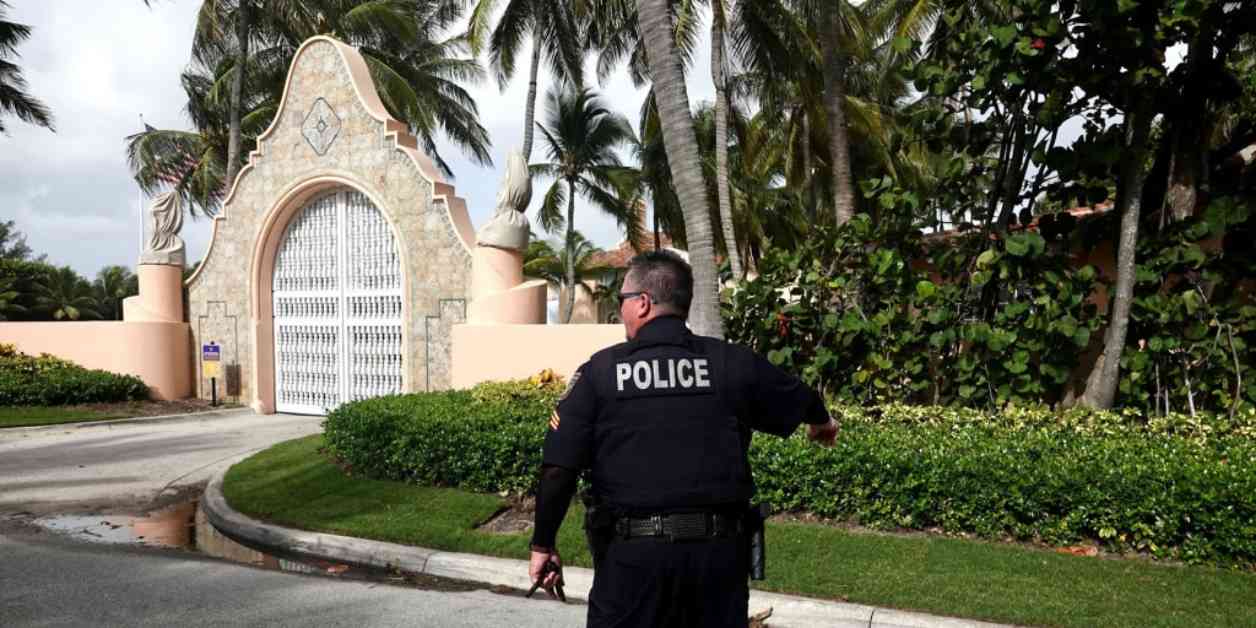Behind the Scenes of the Battle Between FBI and DOJ Officials Over Mar-a-Lago
In a high-stakes showdown between senior Justice Department and FBI officials, tensions reached a boiling point over an ongoing criminal probe involving former President Donald Trump. The meeting, held on August 1, 2022, at the FBI headquarters in Washington, D.C., was described as a “come to Jesus” moment by one participant. The issue at hand? Dozens of top-secret documents that Trump had taken from the White House to his Mar-a-Lago estate and refused to return.
The disagreement between prosecutors from the DOJ’s national security division and FBI’s Washington field office had escalated to an extraordinary level of intensity, pressure, and acrimony. The FBI agents questioned a DOJ prosecutor’s political donations to Democrats and his aggressive stance toward Trump, raising concerns about bias in the investigation. This clash of ideologies and loyalties threatened to derail the probe and expose deep-rooted divisions within the law enforcement agencies.
Unraveling the Complex Dynamics Within the FBI and DOJ
As career officials from both the FBI and DOJ grappled with the complexities of the Mar-a-Lago investigation, the pressure to navigate a politically charged environment was palpable. The FBI’s Washington field office, led by Steven D’Antuono, found itself at odds with DOJ prosecutors over the approach to retrieving the classified documents from Trump’s possession. The conflicting perceptions of Trump’s motivations and the potential national security risks added another layer of complexity to an already contentious situation.
D’Antuono’s insistence on a consensual search of Mar-a-Lago clashed with the DOJ’s push for a more aggressive approach, culminating in a standoff that required intervention from FBI Director Chris Wray and Deputy Director Paul Abbate. The internal strife within the FBI and DOJ underscored the challenges of maintaining nonpartisanship in a hyperpartisan political landscape, where personal biases and external pressures threatened to undermine the integrity of the investigation.
The Impact of Trump’s Political Maneuvering on Federal Law Enforcement
Former President Donald Trump’s relentless attacks on the DOJ and FBI have raised concerns about the erosion of public confidence in these institutions. By leveraging conspiracy theories, threats, and disinformation, Trump has successfully undermined the credibility of federal law enforcement agencies, casting doubt on their ability to conduct impartial investigations. The fallout from the Mar-a-Lago dispute highlighted the precarious position of career officials caught in the crossfire of partisan politics and institutional pressures.
The politicization of the DOJ and FBI, exacerbated by Trump’s divisive tactics, has created a toxic environment where public servants face unprecedented scrutiny and backlash for carrying out their duties. The fear of reprisal, public vilification, and professional ruin has cast a shadow over the integrity and independence of the law enforcement agencies, raising concerns about the long-term consequences of political interference in criminal investigations.
As the dust settles on the Mar-a-Lago saga, questions linger about the future of federal law enforcement in an era defined by polarization, distrust, and disinformation. The legacy of Trump’s presidency, marked by unprecedented attacks on the DOJ and FBI, serves as a cautionary tale of the dangers of weaponizing law enforcement for political gain. The challenges faced by career officials in navigating these turbulent waters underscore the need for vigilance, integrity, and a steadfast commitment to upholding the rule of law in the face of adversity.



























